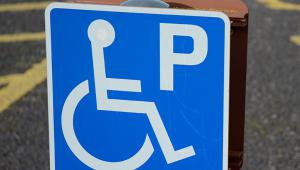The cost of providing voter ID nationally is estimated to cost between £4m to £20m, depending on which model of voter ID is used.
The three potential models, which would be requested when an individual goes to vote and were piloted during the 2018 local elections were: a poll card, mixed ID and photographic ID.
Analysis by the Cabinet Office suggested that the scheme would require greater spending in order to hire additional members of staff, train existing staff and physically issue the voter ID cards.
A Cabinet Office paper, which was issued on 9 August, said that there were 28 reported cases of voter fraud which occurred at a polling station.
Darren Hughes, chief executive of the campaigning organisation Electoral Reform Society, said voter ID proposals were “a solution looking for a problem”.
He said: “There were just 28 allegations of personation - the type of fraud ID is meant to fix – in 2017 which resulted in a single conviction out of 45 million votes.
“That’s over £700k per allegation of polling station fraud last year – a lot of money to throw at unverified rumours, when we know there are real democratic problems to fix”.
The poll card model was piloted in the 2018 local elections by Swindon and Watford and is thought to cost between £4.3m to £20.4m.
The mixed ID model, which requires voters to show photo ID alongside other forms of ID such as a utility bill, would cost £4.6m to £17.1m.
And the photographic ID model, where voters must provide photo ID, would cost between £5.9m to £17.9m.
Shadow minister for voter engagement Cat Smith said: “At a time when our public services are in crisis and thousands of families are having to rely on foodbanks to stave off hunger, it is staggering that the Tories think that they can justify these undemocratic and unaffordable plans.”
A Cabinet Office spokesperson said: “Voters deserve to be confident that their vote is protected.
“We already ask that people prove who they are in order to collect a parcel from the post office, rent a car, or travel abroad - and we believe it is right to take the same approach to protect voting rights.
“Evaluation from the May 2019 pilots will further inform how voter ID should work on a national scale, including costs and what approach will work best for voters and the taxpayer.”











